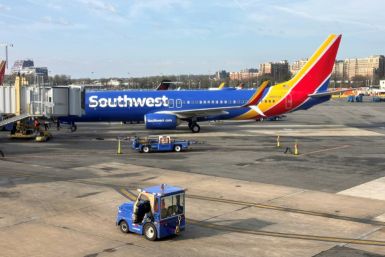Second Macau Junket Boss Arrested As Crackdown Expands
The head of Macau's second-largest junket group has been arrested by the city's police, as authorities tighten the leash on the gambling hub's multi-billion-dollar industry.
The Chinese territory has seen increased scrutiny from the mainland, with a crackdown stepped up and tighter regulations for the gaming sector.
The latest move came Sunday, when police arrested and detained key Macau player Chan Wen-ling.
Chan is the founder of Tak Chun Group, the second-largest junket operator in the city -- serving as go-betweens to bring high rollers from the mainland to Macau's glittering casinos.
He is also chairman of Macau Legend Development, which runs hotels and casinos and confirmed his detention.
Shares in Hong Kong-listed Macau Legend had dropped by 19 percent at Monday's close.

Chan's arrest comes months after his rival Alvin Chau, who led Macau's largest junket operator Suncity, was detained by the city's police in November.
Macau prosecutors had accused Chau and 10 other senior executives of setting up an illegal online betting platform in the Philippines and soliciting mainland Chinese customers.
Police on Sunday said at a news conference that Chan's arrest was related to the previous operation in November.
"Although the two operations are targeting two separate groups, we have sufficient evidence to show that they are in collaboration," they said.
The former Portuguese colony is the only territory in China where gambling is permitted, and the vast majority of punters are mainlanders -- brought in by junket operators like Suncity and Tak Chun.
But an anti-corruption campaign by Chinese President Xi Jinping has seen increased scrutiny of the high rollers and officials who might travel to Macau to place bets and launder money.
Earlier this month, the Macau government unveiled new regulations that would slash the concession period -- from 20 years to 10 years -- for six operating casino giants. It also sought to increase local ownership and government supervision of casino firms.
© Copyright AFP 2024. All rights reserved.











